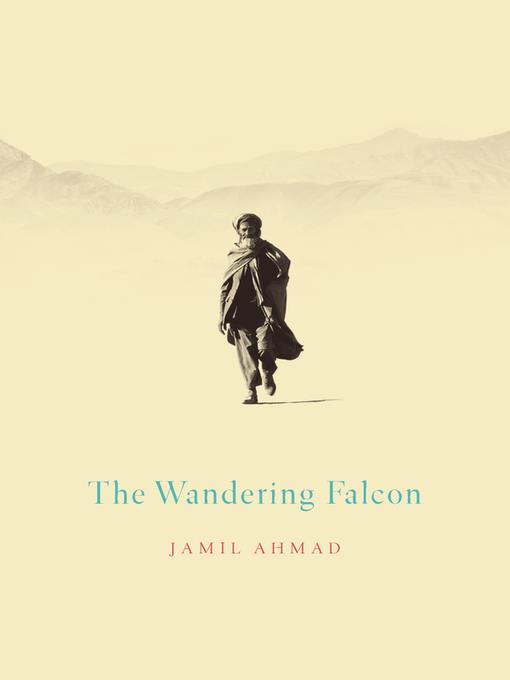
The Wandering Falcon
کتاب های مرتبط
- اطلاعات
- نقد و بررسی
- دیدگاه کاربران
نقد و بررسی

Starred review from July 11, 2011
To the nomadic tribes inhabiting the FATA (Federally Administered Tribal Lands), a harsh border region between Afghanistan, Iraq, and Pakistan, "home and permanency meant only a stay long enough to wash clothes or to affix the cradles to the trees." As a member of the Pakistani Civil Service, Ahmad served as the development commissioner for the frontier and in a minister position in Pakistan's embassy in Kabul during the Soviet invasion of Afghanistan. In his first novel (at the age of 80), he proves a masterful guide to the landscape and to the captivating art of storytelling at its finest. This is a shadowy, enchanting journey. From the searing winds of the desert to the plains where sheep spend the winter grazing, daily life is hardscrabble at best and, more often than not, tragically violent. Over the course of the novel, the mysterious Tor Baz ("Wandering Falcon") weaves in and out of view, remaining as elusive and magnetic to readers as he does to those he encounters; familiar to everyone, he belongs to no one. Even as women are sold, children abandoned, and teachers kidnapped, the moment-to-moment impossibilities of these people reveal a spreading despair that precedes the forced end to these ancient ways of life. No country in which nomads roam recognizes them as legitimate: "In this clash, the state, as always, proved stronger than the individual." A gripping book, as important for illuminating the current state of this region as it is timeless in its beautiful imagery and rhythmic prose.

September 15, 2011
These sketches of life in the tribal lands between Pakistan and Afghanistan mark the debut of the 80-year-old Pakistani author.
A timid young couple seeks shelter at a desolate military outpost. They are lovers; the camel herder has stolen away with his master's wife. She gives birth to their son. Five years pass. The avengers track them down. The herder shoots his wife before he is stoned to death; the love child is spared. This opening episode has the timeless quality of a fable; unfortunately, nothing that follows matches it. Nor does the child serve as a link. He will be 12 before he is even given a name: Tor Baz, meaning black falcon. Later he will make occasional peek-a-boo appearances as an informer, a mountain guide and a trader at a slave market, but he's far from being a developed character. The only links are the landscape (harsh, mountainous, forbidding) and the reflection of tribal customs. Often it is the documentary rather than the narrative details that linger in the mind. Take the Kharots, nomadic herders who move back and forth across the border according to the seasons. By 1958 the Brits have gone and the two states are demanding travel documents, but these illiterate herders have lived free of paperwork. They try outwitting the border guards but are eventually mowed down by machine guns. It's a massacre, but a perfunctory one. Ahmad has big trouble with endings. There's a kidnapping episode. It's interesting to learn who make the best targets: "schoolteachers, doctors and street cleaners." There's a lot of talk but no narrative momentum, and suddenly it's a done deal: Captives are exchanged for ransom money, smiles all around.
Fascinating material that's badly in need of artistic shaping.
(COPYRIGHT (2011) KIRKUS REVIEWS/NIELSEN BUSINESS MEDIA, INC. ALL RIGHTS RESERVED.)

May 15, 2011
Fleeing punishment for having violated their tribe's strictures, a young couple comes to the Federally Administered Tribal Lands, a remote patch of Earth where Iran, Pakistan, and Afghanistan meet. Their son becomes the title's "wandering falcon." An insider's view from a Pakistani first novelist born in 1930.
Copyright 2011 Library Journal, LLC Used with permission.

September 1, 2011
Compounding the unusualness of being an 80-year-old first novelist, Ahmad gives his work the unusual form of a progression of stories featuring a character who is the protagonist of the novel but not of any of the stories. In the first, a young couple staggers into a military outpost on Pakistan's western border, requesting refuge and receiving food and shelter for as long as you want to stay. Soon, a son is born; five years later, the couple's tribesmen arrive. He shoots her dead; they stone him to death, and the boy is abandoned. His growth from small child to young man ready to take a wife strings the subsequent stories together. Intertribal pecking orders and protocols repeatedly lead to murderous violence, and the protagonist is left behind more than once again. Drawing on his decades of welfare work in Pakistan's Federally Administered Tribal Areas, Ahmad aims to sear the region's harsh and stringent tribal culture indelibly into the reader's consciousness. Writing as sparely as any Hemingway, he succeeds brilliantly.(Reprinted with permission of Booklist, copyright 2011, American Library Association.)

























دیدگاه کاربران